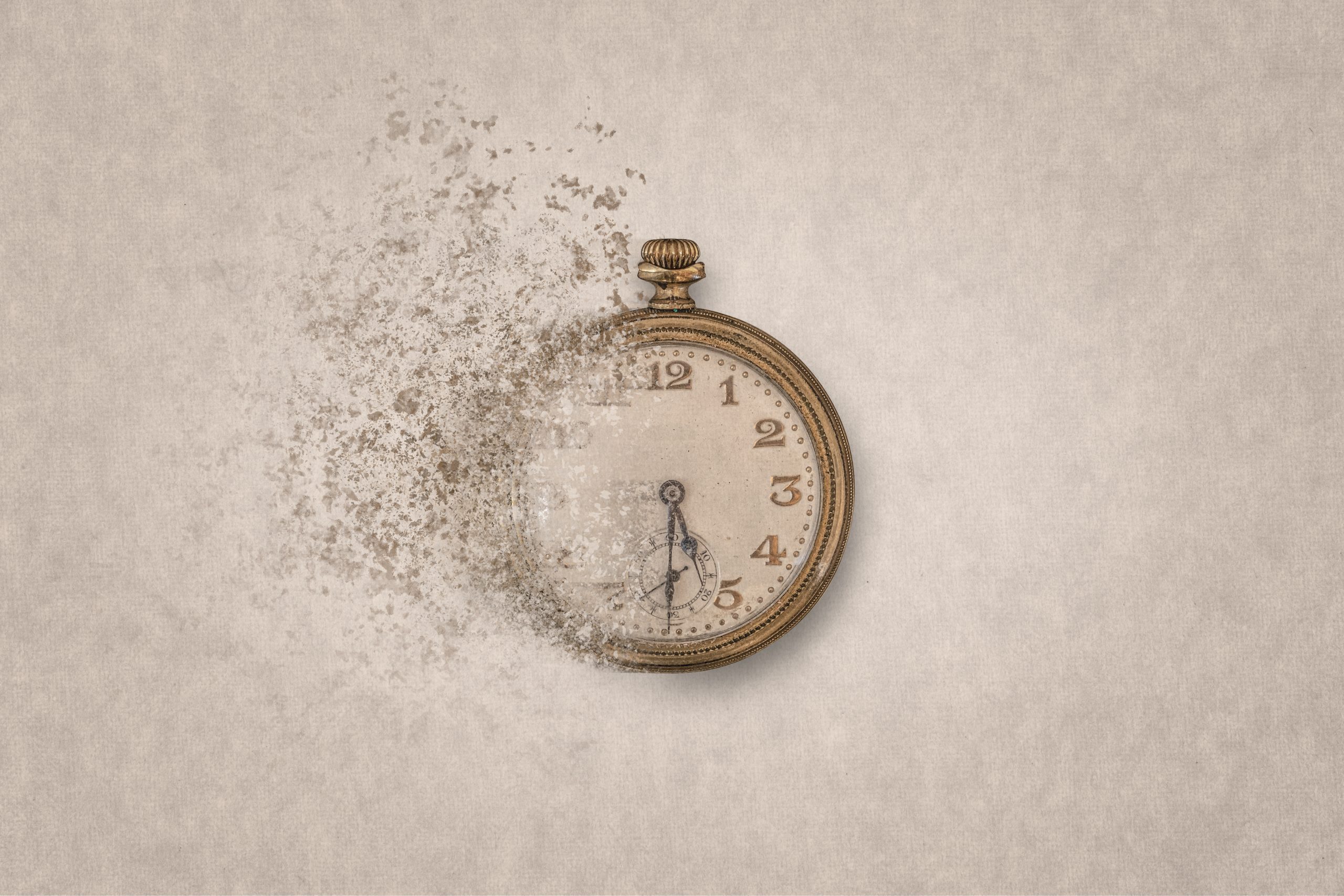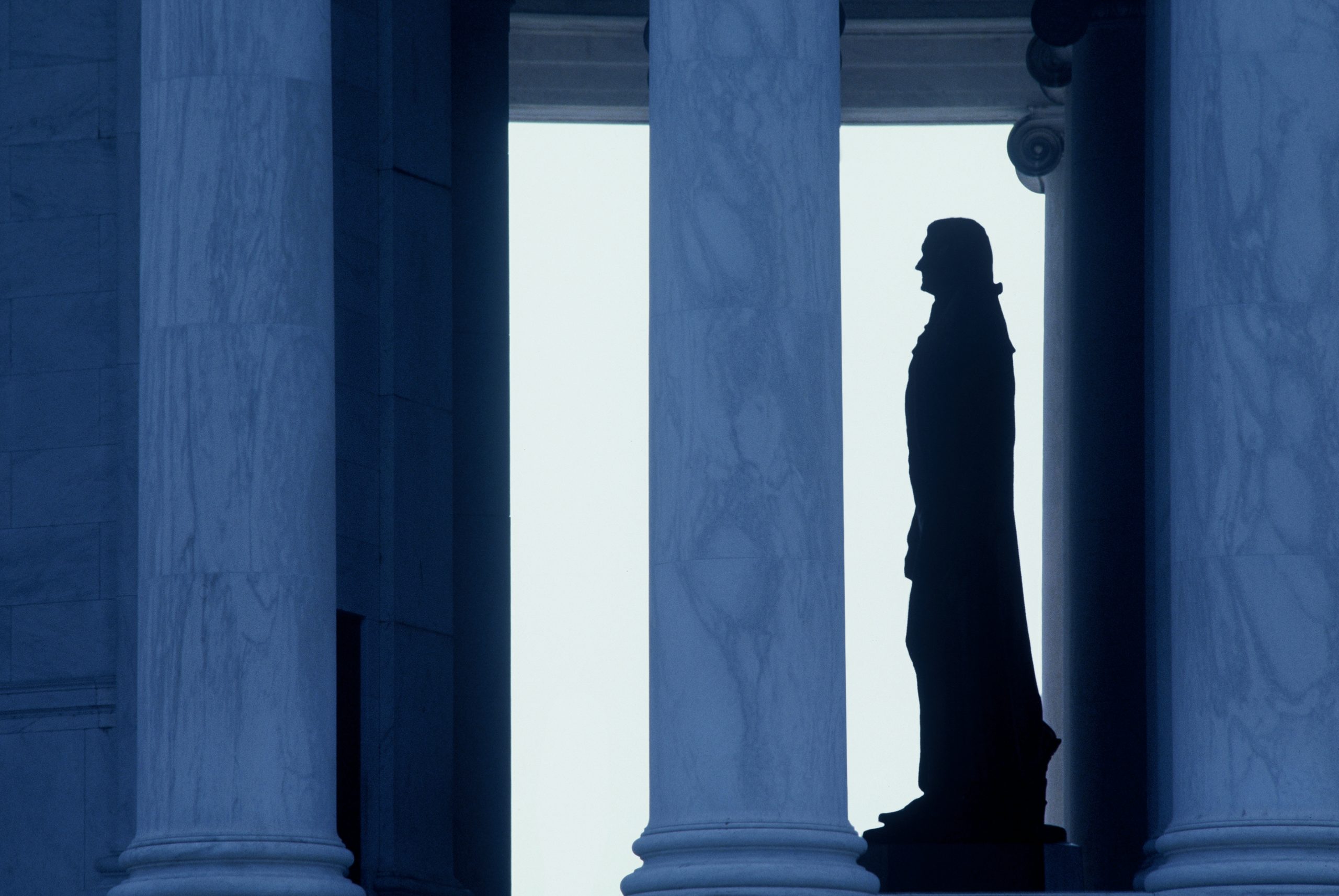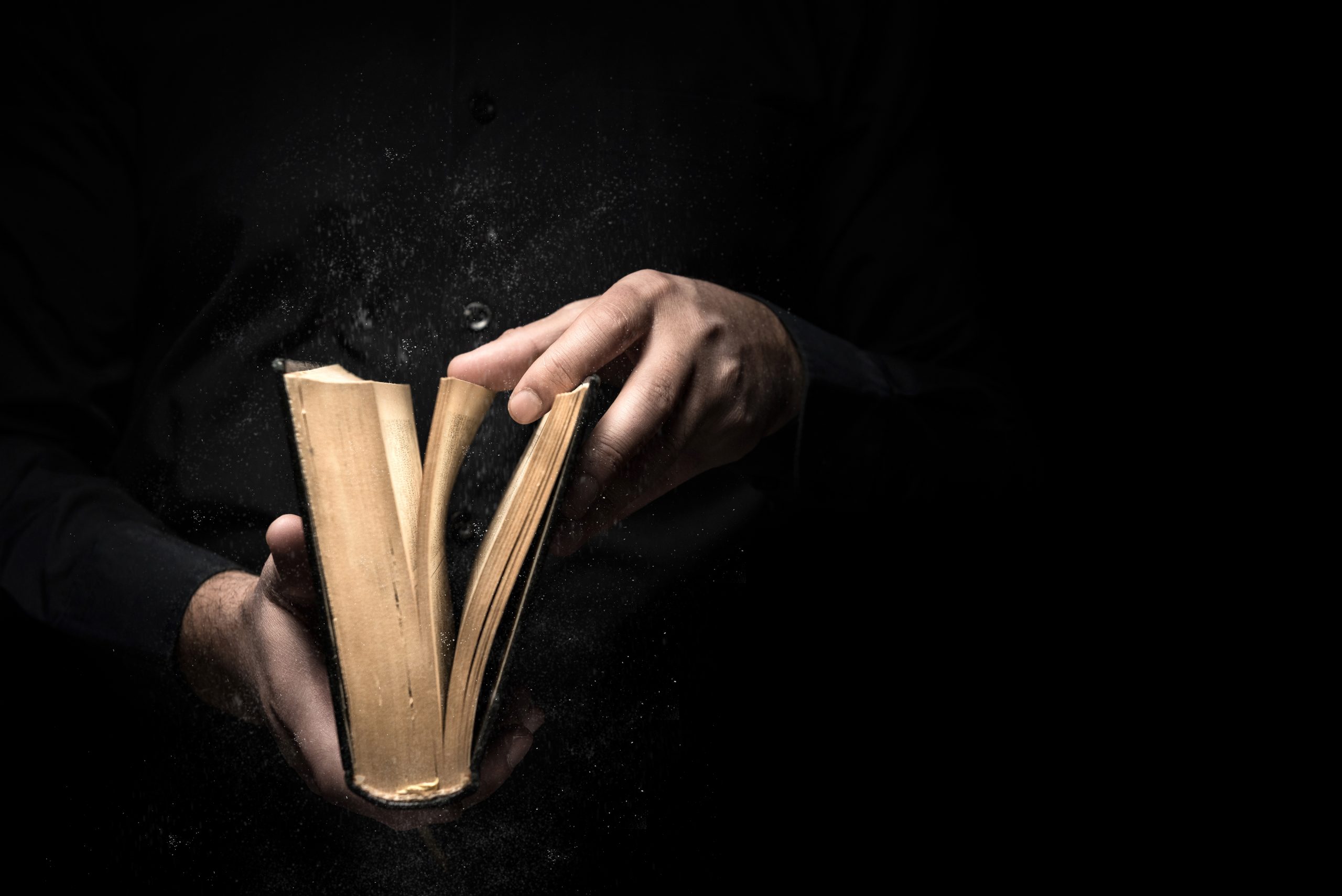Harry V. Jaffa rejected both the living constitution of the Progressives and the moral relativism of some conservatives.
Timeless Truth

Harry V. Jaffa's work and teaching was not enslaved to the fashions of his day.
What follows is a speech given in honor of Harry V. Jaffa on the occasion of his retirement from the Claremont McKenna College faculty in 1989. We publish it here to mark the publication of Claremont Institute Senior Fellow Glenn Ellmers’s new book on Jaffa’s life and thought, available for purchase here.
Harry Jaffa has a way of making people say things that they never really meant to say although they very much thought them all the same. In this week’s college newspaper, there appeared a letter, in response to him, which opened, “It is a queer argument which equates homosexuality with rape and murder.” The young lady who wrote that sentence may still not know what she said, but I have still not stopped laughing. This small event, locked in time, frames a teaching gift, which has been unparalleled in our age of the world.
A friend of mine once wrote an essay “Against Time,” which began with the following words:
That time has no being and no power, that the past is most to be cherished by those who have the least taste for bygones, that our own temporality is the work of the imagination—these are reflections that I want to articulate…. for I believe…that opinions of this sort are necessary for thinking of ourselves as free and filling our lives with substance.
Time and freedom seem often subjects which cannot be discussed apart. The Declaration of Independence opens, “When in the Course of Human Events,” which I have supposed to mean, “When the time has come.” Harry Jaffa has described this “filling our lives with substance” as the very process by which we come to have distinct lives and, he says, “to be possessed of freedom means to be possessed of dignity—or indignity.”
This freedom, though, can never be scientifically demonstrated—it results from a species of transcendence. This freedom is not only a freedom to perform voluntary actions but, thereby, also a certain freedom from the external world. Time, though, never seems to part from the external world, save as created by ourselves.
Time is often represented to us as the restraint—the ball and chain—that ties us to the external world. Time is often freedom’s enemy—not merely its partner. Even Shakespeare noted the need to rely upon dynameis transcending time in order to accomplish human purposes: “Love’s not Time’s fool,” he wrote, “though rosy lips and cheeks within his bending sickle’s compass come.” To become the fool of time is to imagine that it marks human works and days.
Einstein defined time as the “position of the small hand” on his watch—local time, such time as might mark human works and days if men could not work beyond their locales. Little wonder my friend wrote against time; little wonder men sometimes struggle against time. Einstein’s definition, attempting to make us feel at home with time, left nothing but the ball and chain to shackle us with time.
Shackled to time, men would not require so to exert themselves to understand—their moving prison would ultimately reveal all. Each final doctrine, as Strauss might have said, would serve as prologue to innovation. Crisis of the House Divided felt, without succumbing to, this imprisonment. Harry Jaffa insisted that time—become history, which is time reified or made continuous—had been employed to abolish God and Nature. In doing so, however, history’s inventors failed to shackle man to history, for they abolished “that correlative concept, man, from this same world.”
Nothing else typifies so well Harry Jaffa’s response to the crises of our time than his refusal to submit to time as a substitute for reason. While others murmur discontentedly in their balls and chains, Harry Jaffa strives to saw through these practical denials of natural right. My friend wrote an essay against time; my teacher, colleague, and friend, Harry Jaffa, works against time. Perhaps, then, he will not think it inappropriate to accept this symbol of his timeless labors. On behalf of his students everywhere and always, I present a gift of this watch, made at the start of this century, along with its gold chain, and yes, a ball. But there is also a gold saw suspended from this chain, and if anyone has the gift to use it to good purpose, Harry Jaffa does.
The American Mind presents a range of perspectives. Views are writers’ own and do not necessarily represent those of The Claremont Institute.
The American Mind is a publication of the Claremont Institute, a non-profit 501(c)(3) organization, dedicated to restoring the principles of the American Founding to their rightful, preeminent authority in our national life. Interested in supporting our work? Gifts to the Claremont Institute are tax-deductible.
At the crossroads of reason and revelation stands the American idea.
Reflections on Harry V. Jaffa from a grateful student.
Rescuing America is the great task of this generation's best.
Harry V. Jaffa helped save American history from Progressive historicism.
Glenn Ellmers's new book on Harry V. Jaffa teaches urgent lessons for our fractious politics.






